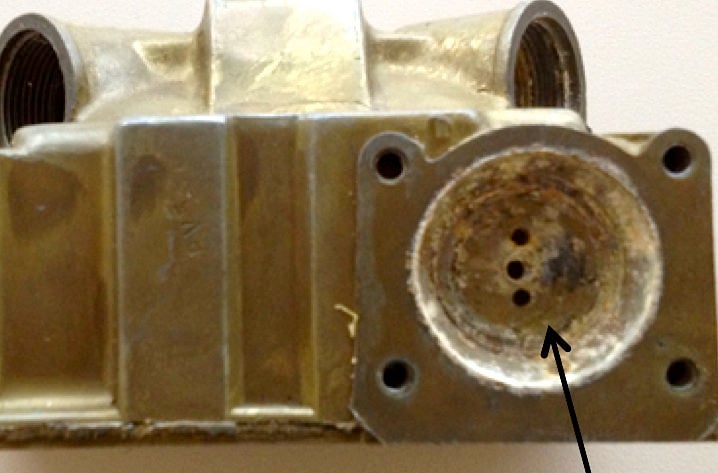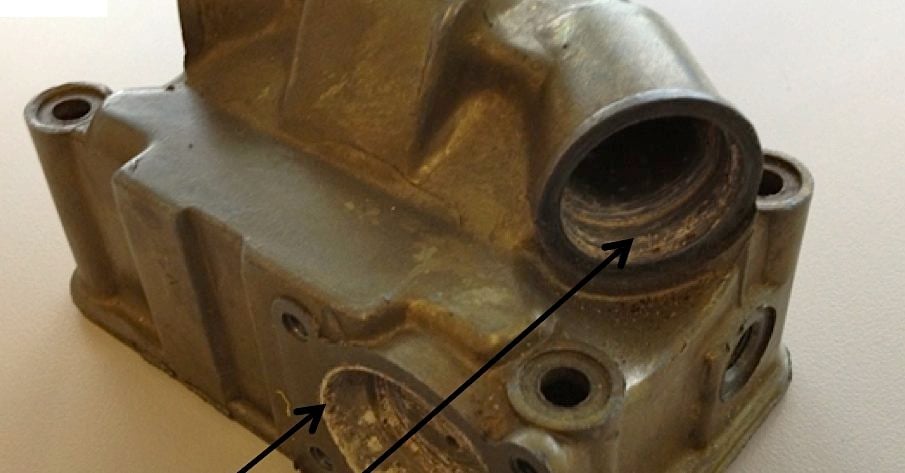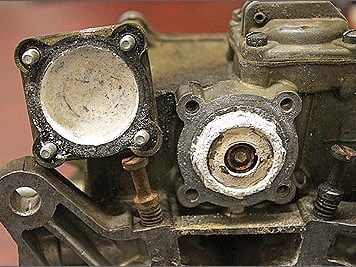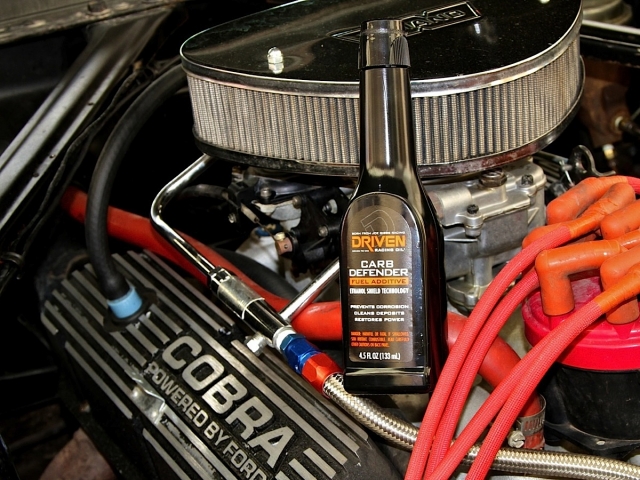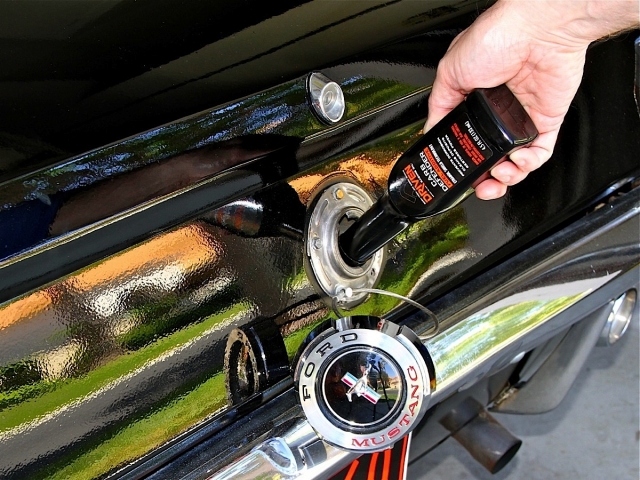 [1]Collector car enthusiasts have already staged protest rallies in Washington, and trade groups like SEMA [2] are mounting political action campaigns against the increased use of ethanol in pump gasoline. But as the battle rages on in the courts and legislature, what options do vintage car owners have in protecting their vehicles against the potential harmful effects of ethanol in the gas tank?
[1]Collector car enthusiasts have already staged protest rallies in Washington, and trade groups like SEMA [2] are mounting political action campaigns against the increased use of ethanol in pump gasoline. But as the battle rages on in the courts and legislature, what options do vintage car owners have in protecting their vehicles against the potential harmful effects of ethanol in the gas tank?
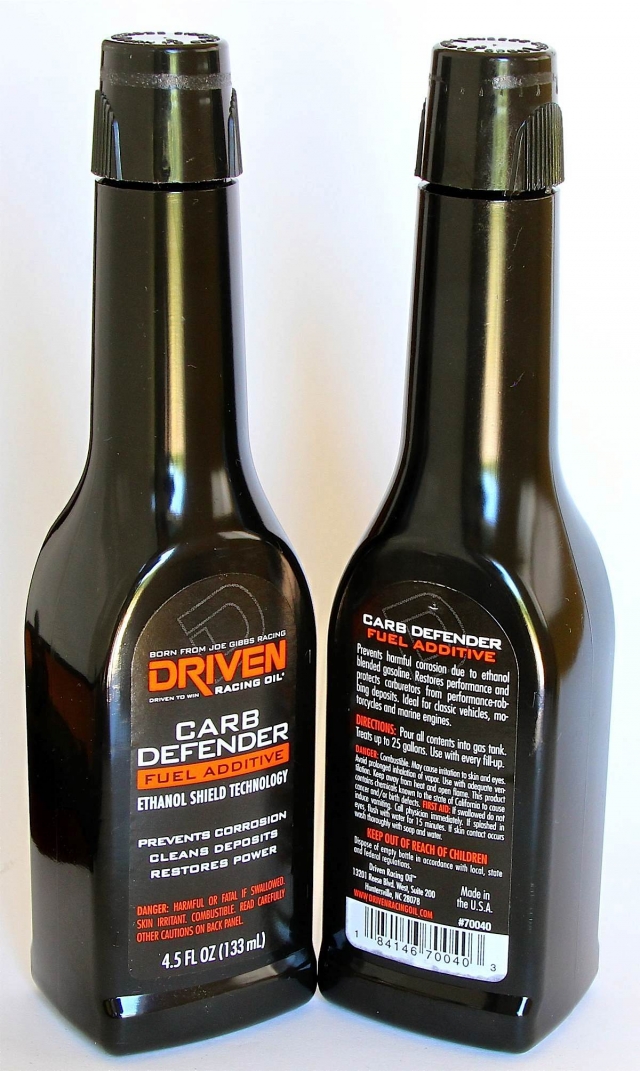 [3]First, the problem. The Environmental Protection Agency wants to increase the ethanol content in gasoline from 10 percent (E10) to 15 percent (E15). In the background is the Renewable Fuel Standard, which calls for the country to use 15 billion gallons of biofuels in 2012, a number that skyrockets to 36 billion gallons by 2022. The oil industry claims those levels will be difficult to reach without increasing ethanol content in gasoline; however, there can be unwanted side effects to adding ethanol — especially for older vehicles, motorcycles and off-highway vehicles, such as boats and snowmobiles. Even small engines like lawn mowers can be affected by ethanol.
[3]First, the problem. The Environmental Protection Agency wants to increase the ethanol content in gasoline from 10 percent (E10) to 15 percent (E15). In the background is the Renewable Fuel Standard, which calls for the country to use 15 billion gallons of biofuels in 2012, a number that skyrockets to 36 billion gallons by 2022. The oil industry claims those levels will be difficult to reach without increasing ethanol content in gasoline; however, there can be unwanted side effects to adding ethanol — especially for older vehicles, motorcycles and off-highway vehicles, such as boats and snowmobiles. Even small engines like lawn mowers can be affected by ethanol.
Ethanol absorbs water from the atmosphere or just about any other source, which can lead to corrosion in the fuel system as well as inside the engine. Ethanol can also harm fuel system parts not designed for alcohol, such as fuel lines that will soften or swell. Plus, ethanol has a much lower energy content than gasoline. Newer vehicles with EFI and O2 sensors can compensate accordingly when ethanol is introduced into the fuel, but carbureted vehicles will likely run leaner. Also, newer vehicles are designed with fuel components that can withstand the effects of ethanol.
The ethanol industry likes to stress that NASCAR uses E15 and IndyCar uses E85. But those race-only vehicles have fuel-line components designed for ethanol, and the engines are frequently torn down for inspection. The biggest concern from the enthusiast community remains with older vehicles.
According to SEMA, E10 has been around for years and its use continues to increase. More than 90 percent of gasoline sold in 2010 was E10, but labeling rules for the pumps are inconsistent between the states. Even if a car enthusiast wanted to search out a pump that offers pure gas, there’s no way of knowing by looking at the pump. When the EPA allowed partial waivers to permit the sale of E15, it also made it illegal to fuel vehicles manufactured before 2001, due to concerns over fuel system degradation. But without consistent pump labels, there’s no way consumers will know what’s coming out of the pump. And the oil industry is unlikely to offer multiple pumps to give consumers a choice. SEMA doesn’t advocate eliminating E10 and, in fact, supports ethanol as an alternative fuel if it doesn’t pose a risk.
“There would be no need to raise fuel content from E10 to E15 if existing flex-fueled vehicles were filled with E85 and more flex-fuel vehicles were sold,” SEMA says in a statement.
While the political battle rages on, the best defense a car enthusiast has against ethanol side effects is a fuel additive. The biggest problem for collector cars, as with boats and other powersports vehicles, is downtime. Again, the ethanol can be harmful to fuel system components, especially when the vehicle isn’t used regularly.
“Ethanol is naturally corrosive. It will eat zinc and aluminum,” warns Lake Speed Jr. of Driven Racing Oil [4], which manufacturers Carb Defender, a fuel additive that offers “ethanol armor technology.”
“Instead of trying to change the fuel, you simply protect the fuel system components from the ethanol by adding powerful corrosion inhibitors,” explains Speed. “This approach has been used successfully in countries like Brazil that have used ethanol blended fuels for decades. Carb Defender provides the correct blend of corrosion inhibitors and deposit fighting additives to keep you carburetor or fuel injection system working properly.
Ethanol can cause corrosion in the fuel system, especially if vehicles are in storage or not used regularly.
“These specialized additives work to shield the surfaces of the fuel pumps, injectors and carburetors from the ethanol and the moisture it carries along,” continues Speed. “It really is like ‘molecular armor’ for your fuel system. Because both ethanol and methanol fuels dry out rubberized components, Carb Defender also provides a ‘wetting agent’ to help offset the drier alcohol fuel.”
Carb Defender can be used in ethanol blended fuels from E10 all the way up to E85. Carb Defender can also be used in race cars that run on either methanol or E85. Driven suggests adding a single 4.5-ounce bottle to each fillup, especially if the vehicle will in storage for an extended period. A single bottle of Carb Defender treats up to 25 gallons of fuel.
